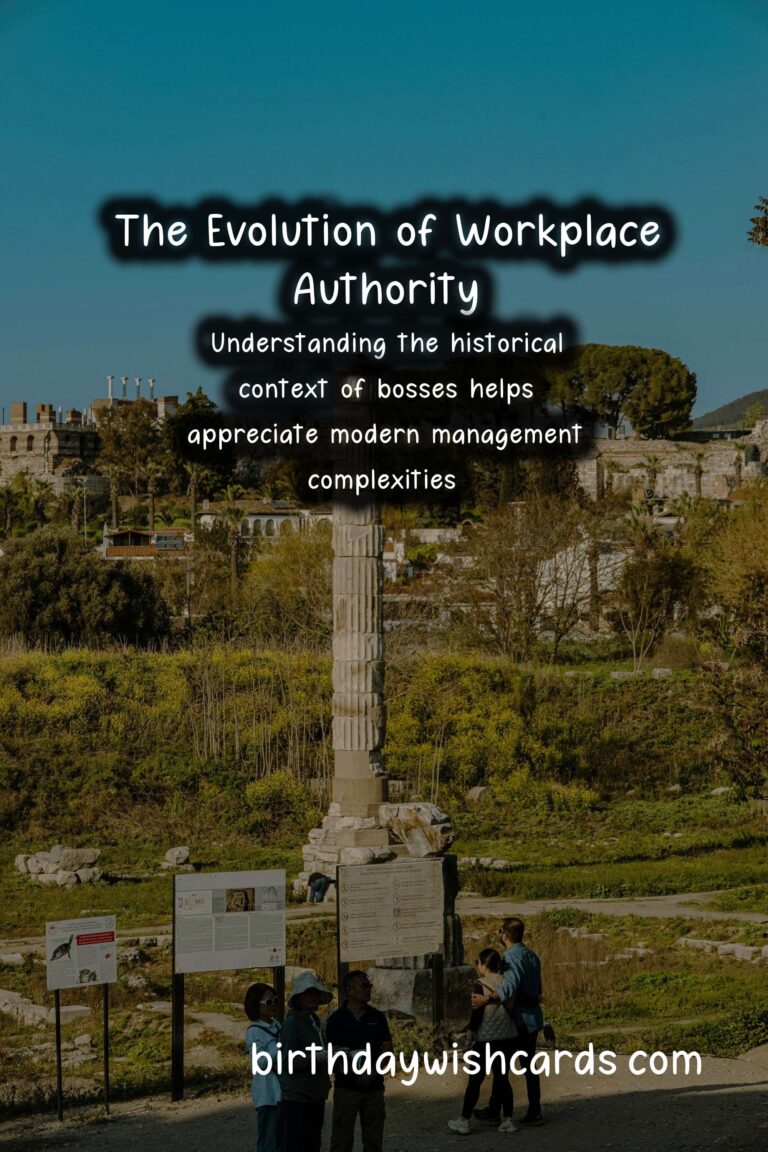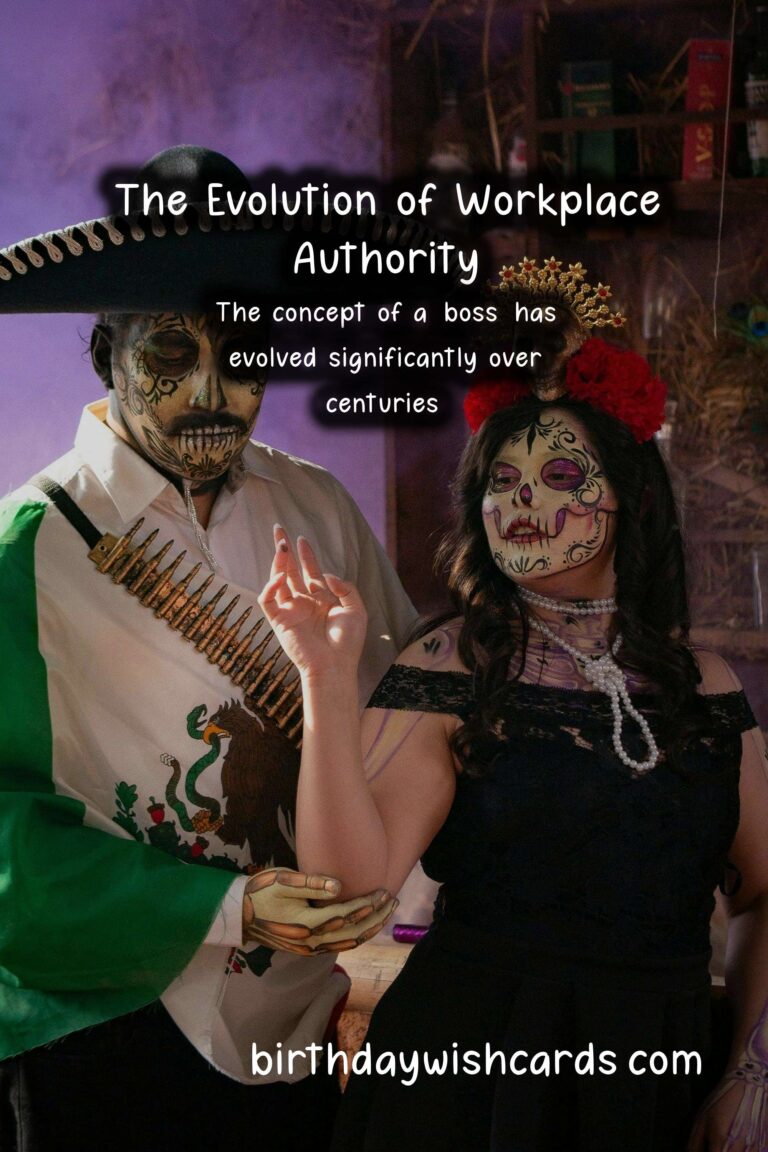
In the world of work, the term ‘boss’ often conjures images of authority, oversight, and management. This concept, however, is not as straightforward as it seems. To truly grasp the significance of bosses in today’s workplace, we must delve into the historical context that has shaped this role over centuries.
The Origins of Authority in Work
The notion of a ‘boss’ can be traced back to the development of organized labor and the hierarchy within societies. In ancient times, leaders or heads of households were synonymous with authority. These figures governed not just family dynamics but also dictated the operation of small-scale work collectives.
During the early agricultural societies, individuals who owned land held power. This power extended to laborers, who were bound to their land due to economic necessity. The concept of a boss began to evolve as commerce sprung up around agrarian needs.
Medieval and Feudal Systems
As we move into the medieval period, the feudal system introduced a more defined hierarchy. Lords and nobles employed serfs, who worked the land in exchange for protection and sustenance. Here, the boss was often a landowner who enforced strict rules and labor expectations.
The relationship between the lord and his serfs was complex, characterized by mutual dependency but also exploitation. This set the groundwork for future employer-employee dynamics.
Industrial Revolution: A Shift in Workplace Hierarchies
With the onset of the Industrial Revolution in the 18th century, workplaces transformed dramatically. Factories emerged, leading to an increased demand for labor. The term ‘boss’ began to solidify into the modern understanding of managerial roles.
During this era, a significant divide formed between management and workers. Factory owners became powerful ‘bosses,’ creating many of the labor rights we know today as a response to harsh working conditions.
20th Century Management Theories
The evolution of management theories in the 20th century further refined the role of bosses. Pioneers like Frederick Taylor promoted scientific management, emphasizing efficiency and productivity. This created a more structured environment under the directive of a boss who was seen as a facilitator of work processes.
As the century progressed, various theories emerged, each proposing different leadership styles. From autocratic to democratic leadership, the ways in which bosses interacted with employees transformed significantly.
Modern Leadership Styles
Today, leadership in the workplace has become increasingly nuanced. Terms such as ‘transformational leadership’ and ‘servant leadership’ characterize the modern boss. The focus has shifted from mere oversight to inspiring and empowering employees.
This evolution reflects broader societal changes, including the emphasis on teamwork, communication, and employee well-being. Millennials and Gen Z workers are redefining expectations from their bosses, seeking mentorship rather than dictatorship.
Challenges Faced by Modern Bosses
While the role of the boss has evolved, challenges remain. Balancing authority with approachability is a common struggle. The rise of remote work dynamics has further complicated boss-employee relationships, making it imperative for leaders to adapt their management styles.
Moreover, the ongoing discourse on workplace mental health stresses the importance of compassionate leadership. Today’s bosses are expected to contribute positively to the workplace culture, which includes promoting work-life balance and inclusion.
Conclusion: The Boss’s Role in the Future
As we look to the future, the role of the boss will likely continue to evolve. With advancements in technology, the globalization of work, and a focus on diversity, bosses will need to embody more flexible and adaptive leadership styles.
Understanding the historical context of bosses helps to appreciate the complexities of modern management. The evolution of authority in work environments is a testament to societal changes, labor movements, and shifting cultural values. The modern boss is no longer just a figure of authority but a leader, mentor, and facilitator of growth.
The concept of a ‘boss’ has evolved significantly over centuries. Understanding the historical context of bosses helps appreciate modern management complexities. 













